Two interesting items:
The colour brown: de-colonising anarchism and challenging white hegemony by Budour Hassa in Random Shelling. Extract:
The appearance of the Egyptian Black Bloc in Cairo’s streets in January 2013 triggered gullible excitement in Western anarchist circles. Little thought was given to the Egyptian Black Bloc’s political vision – or lack thereof – tactics, or social and economic positions. For most Western anarchists, it was enough that they looked and dressed like anarchists to warrant uncritical admiration. Facebook pages of Israeli anarchists were swamped with pictures of Egyptian Black Bloc activists; skimming through the US anarchist blogosphere during that period would have given one the impression that the Black Bloc was Egypt’s first-ever encounter with anarchism and anti-authoritarianism. But as American writerJoshua Stephens notes, the jubilant reaction many Western anarchists have towards the Black Bloc raises unflattering questions concerning their obsession with form and representation, rather than content and actions. And in this regard, these anarchists are not different from the Islamists who were quick to denounce the Black Bloc as blasphemous and infidel merely because they looked like Westerners. Further, many Western anarchist reactions to the Black Bloc unmask an entrenched orientalist tendency. Their disregard of Egypt and the Middle East’s rich history of anarchism is one manifestation of this. As Egyptian anarchist, Yasser Abdullah illustrates, anarchism in Egypt dates back to the 1870’s in response to the inauguration of the Suez Canal; Italian anarchists in Alexandria took part in the First International, published an anarchist journal in 1877, and took part in the Orabi revolution of 1881; Greek and Italian anarchists also organised strikes and protests with Egyptian workers. Yet these struggles are nonchalantly shunned by those who act today as if the Black Bloc is the first truly radical group to grace Egyptian soil….
I begin by showing that colonial attitudes made the Republicans of the Spanish Revolution neglect Spanish colonialism in North Africa, leading them to focus solely on fighting fascism at home. That the Spanish Revolution continues to serve as an important reference for today’s anarchist movements, it is not surprising that similar colonial attitudes lead today’s movements to write-off centuries of anti-authoritarian struggle in Asia, Africa and the Middle East….
Exceedingly Immersed in their fight against fascism and tyranny in Spain, the [Spanish] revolutionaries ignored Spain’s colonialism, fascism and tyranny across the Mediterranean. The level of dehumanisation toward the “Other” was so high that, according to most pro-revolution narratives, the only role colonised Moroccans were given to play was one of mercenaries brought in by General Franco to crush the Popular Front. Much pro-revolution sentiment would go as far as referring to Moroccans in a racist manner. While it is difficult to argue that mutual solidarity between Spanish revolutionaries and colonised Moroccans could have changed the outcome of the War, it is also difficult to know whether this kind of solidarity was ever feasible in the first place. As the late American historian Howard Zinn puts it: “In the short run (and so far, human history has consisted only of short runs), the victims, themselves desperate and tainted with the culture that oppresses them, turn on other victims.” On the other hand, anarchism, in its essence, means rejecting and fighting against any form of authority and subjugation, including colonialism and occupation. To be truly anti-authoritarian, therefore, any struggle against fascism and dictatorship at home should be internationalist and cannot be separated from the struggle against fascism and tyranny abroad, in its role as a colonial power….
And Palestinian Anarchists in Conversation: Recalibrating anarchism in a colonized country, by Joshua Stephens, originally in the Lebanese magazine The Outpost. Extract:

“I’m honestly still trying to kick the nationalist habit,” jokes activist Ahmad Nimer, as we talk outside a Ramallah cafe. Our topic of conversation seems an unlikely one: living as an anarchist in Palestine. “In a colonized country, it’s quite difficult to convince people of non-authoritarian, non-state solutions. You encounter, pretty much, a strictly anticolonial – often narrowly nationalist – mentality,” laments Nimer. Indeed, anarchists in Palestine currently have a visibility problem. Despite high-profile international and Israeli anarchist activity, there doesn’t seem to be a matching awareness of anarchism among many Palestinians themselves.
See also: anarchist tagged posts on Tahrir-ICN about Egyptian anarchists.






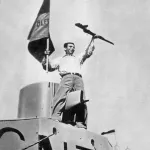




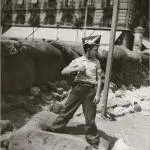










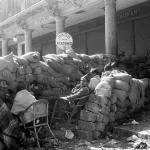



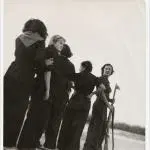



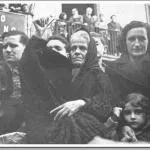








 I’m not sure whether or not I’ve linked already to
I’m not sure whether or not I’ve linked already to 




